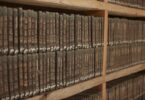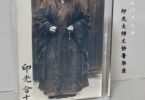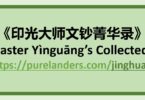如何处理不能读供之经像
[222] How To Handle Sūtras [And] Images Not Able [To Be] Read [And] Offered
经像之不能读不能供者,固当焚化之。
Of those sūtras [and] images not able [to be] read [and] offered, [there] certainly should [be] burning of [them].
[Note 1: Images include damaged or deteriorated Buddhist pictures and statues, such as those of Buddhas and Bodhisattvas. Burning is for returning them to the elements properly and completely, instead of leaving incomplete sūtras and images around, which might be misunderstood and disrespected. However, to prevent wastage, sūtras and images that still can be repaired well should be repaired, for further use or circulation.]
然不可作平常字纸化,必须另设化器,严以防守,不令灰飞余处。
However, [they] must not [be] as ordinary papers [with] words burnt, [and there] must [be] another burning vessel set up, strictly with preventing [and] guarding, [to] not cause [their] ashes [to] fly [to] other places.
[Note 2: To express reverence, there should be a clean and dedicated container used, also for ensuring that the ashes do not fly to dirty elsewhere, perhaps with incomplete burning too. Ideally, there is reciting of the Buddha’s name (Āmítuófó: 阿弥陀佛) while burning too.]
以其灰取而装于极密致之布袋中,又加以净沙或净石,俾入水则沉,不致漂于两岸。
With their ashes obtained and filled within [an] extremely closely spaced cloth bag, also add with clean sand or clean stones, so that [when] entering water then sinking, not leading [to it] drifting towards [the] two shores.
[Note 3: The adding of only clean sand or stones is to express respect. Putting the bag of ashes in open waters is to place them out of sight, while offering blessings, to be carried by the flow of the waters.]
有过海者,到深处投之海中,或大江深处则可。
[If there] are those crossing [the] ocean, reaching [its] deep parts, throwing them within [the] ocean, or [in] great rivers’ deep parts, then can [this be done].
[Note 4: This is to ensure that they will be out of reach to most, to not be accidentally uncovered and disturbed. Relevant existing laws, if any, should be followed to prevent environmental problems. In these days, due to the worsening climate crisis, might the Buddhas and Bodhisattvas prefer there to be respectful recycling, perhaps after wrapping up the items tidily?]
小沟小河,断不可投。
[In] small drains [and] small brooks, [they] absolutely must not [be] thrown.
[Note 5: This is to prevent choking them, perhaps leading to bursting and polluting too.]
净土宗十三祖印光大师
Pure Land Tradition’s 13th Patriarch Great Master Yìnguāng
《印光法师文钞》(三编):复如岑法师代友人问书;
Dharma Master Yìnguāng’s Collected Writings (Third Compilation): Reply Letter [To] Dharma Master Rúcén’s Question On Behalf [Of A] Friend;
印光大师文钞菁华录(第两百二十二则):五、勉居心诚敬(第十七则)
Record [Of] Great Master Yìnguāng’s Collected Writings’ Essence (222nd Short Section): 5th [Chapter]: Encouragement [Of The] Mind [To] Dwell [In] Sincerity [And] Reverence (17th Short Section)
[Ref: #222 / 5.17]
Namo Amituofo : Translation and notes by Shen Shi’an
下一部分
Next Part:
世出世法,不出因果
[223] Worldly And World-Transcending Dharma Teachings, Are Not Outside Of Cause And Effect
https://purelanders.com/2022/09/10/223-worldly-and-world-transcending-dharma-teachings-are-not-outside-of-cause-and-effect
上一部分
Previous Part:
多看经论,胜于背诵
[221] More Reading Of Sūtras And Commentaries, Is Superior To Reciting From Memory
https://purelanders.com/2022/09/08/221-more-reading-of-sutras-and-commentaries-is-superior-to-reciting-from-memory
完整典籍
Complete Text:
《印光大师文钞菁华录》
Record Of Great Master Yìnguāng’s Collected Writings’ Essence
https://purelanders.com/jinghualu






